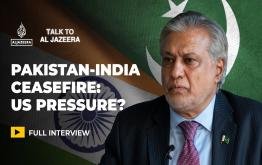
Law will be made for regulation of social media, OTT, digital platforms
The Modi government at the Center in India will bring a new law to regulate social media and digital content in the next three months. Law Minister of India Ravi Shankar Prasad and Communications Minister of India Prakash Javadekar announced this at a press conference in Delhi.
Ravi Shankar Prasad said, "Social media is doing business in India, they have done good business and strengthened the Indian people. But at the same time there have been complaints of irresponsible use of social media for the last several days.
According to the Modi government, over the past few years, there have been many complaints on social media like promoting violence, sharing obscene content, using other country's posts, the government has brought new guidelines to deal with it and in three months it A law will be made for this.
What are the guidelines?
Explaining the guidelines, Ravi Shankar Prasad said, "Social media is divided into 2 categories, one intermediary and the other signifcant social media intermediary. We will soon issue a notification of the user number for this. ''
"If a complaint is made about the dignity of the users, especially the dignity of women, then the content has to be removed within 24 hours of making the complaint."
He said that the law of significant social media will be implemented in three months.
Apart from this, social media companies will have to make a grievance redressal mechanism and also make the name of the officer handling the complaints public. This officer will register the complaint in 24 hours and resolve it in 15 days.
He said that Significant Social Media will have to appoint Chief Compliance Officer, Nodal Content Person and a Resident Grievance Officer, all of which will be in India. Apart from this, they will also have to issue a report related to the disposal of complaints every month.
Account verification will be necessary
Modi government said, furthermore, to ensure that fake accounts are not created on social media, companies will be required to make the verification process mandatory.
Who has made a post on the social media platform, the company has to give this information on the court's order or the government's asking.
Ravi Shankar Prasad said, "On asking any court or government, they have to tell who started a post. If started from outside India then who started in India. This should be in relation to India's sovereignty, national security, relations with foreign states, rape etc. ''
However, social media companies have often argued that in order to provide such information, they have to break the end to end encryption and save the user's data, which would violate their privacy. End to end encryption means that no third (even company) can hear or read the conversation between two people.
In response to a question related to how the company can provide this information, Ravi Shankar Prasad said, "We are not asking to break encryption, we are just asking who started it."
He cited some guidelines of the Supreme Court that these steps are necessary to prevent the spread of pornographic material, rape, gang rape videos. Apart from this, he said that many news reports of social media posts have also come out from outside the country.
Ravi Shankar Prasad said that the purpose of all these rules is to give more power in the hands of the people. Talking in detail on this, he said, "If a significant post is removed, the company will have to give a reason for it."
He said that all these things will be asked by the platforms to create a mechanism.
Ravi Shankar Prasad also gave users data on different social media platforms. According to him, there are 53 crores of WhatsApp in India, 44.8 crores of YouTube, 41 crores of Facebook, 21 crores of Instagram, 1.75 crores of Twitter users.
Also rules for OTT and digital platforms
Modi government will also bring legislation to regulate OTT platform.
India's Union Minister for Information and Broadcasting Prakash Javadekar said, "There will be a three-tier mechanism for the OTT platform. OTT platforms and digital media will have to provide information about themselves, and they will have to create a grievance redressal mechanism.
According to Javadekar, the government had earlier met OTT companies and asked them to create a self-regulation but they could not do so.
OTT and digital news platforms will have to provide their details as they work from where the new rules come. Apart from this, a portal will have to be created for redressal of grievances.
Javadekar said that like TV and print, a regulatory body will be created for digital, which can be headed by a retired judge or eminent person.
He said, "Just as an apology is made on TV for making a mistake, the same has to be done for digital."
Apart from this, the content will have to be classified according to age and will have to provide parental lock.
He said that where immediate action is required, a monitoring mechanism will be created at the government level for such cases.

















